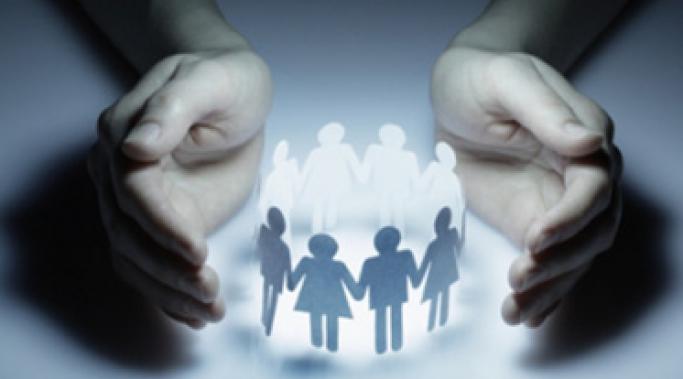Mental health stigma affects the loved ones of a person with mental illness, not only the person with the mental illness. I don’t mean in the situations where the loved one openly or inadvertently stigmatizes, but rather the stigma falls onto them to by association. I know it’s sometimes just a worry that we as people with mental illness have, and typically we look at it in the form of thinking we’re embarrassments rather than the targets of stigma, but loved ones face mental health stigma, too.
Stigma in Relationships
When people have wrong ideas about those who suffer from a mental health issue, moods and relationships can be affected by this mental health stigma (Misunderstandings Can Contribute to Mental Health Stigma). Moods are affected by mental health stigma because when you allow these false ideas to affect you, quite often you will have poor self-esteem, which can lead to other effects such as isolation. Isolation is one of the worst parts of mental illness and when you stay inside and shut yourself off from the world, the first thing to be affected is relationships which can then lead to or add to low moods.
Mental illness stigma and when to be honest in a relationship is tricky business. Being in a relationship when you have a mental illness can often make the difference between feeling good about yourself and feeling as though life has no meaning. Unfortunately, sometimes being honest about mental illness in a relationships causes people who believe in the stigma to leave.
Mental illness stigma may tell you that your life is over. Stigmatized individuals, even family and friends, will assume that there is no hope, no recovery, and certainly no real life to live upon the diagnosis of a mental illness. It is infuriating when this happens, and, in my opinion, the diagnosis of a mental illness may actually spell the beginning of a new life and a life worth living, especially since a debilitating mystery has finally been solved. Mental illness stigma may tell you that your life is over, but it isn't.
When mental illness stigma comes from your own friends, it can be a very jarring and hurtful experience. Even the people that you hold close and trust can be guilty of judgement, hurting you emotionally, and may even stigmatize you. I have been diagnosed with bipolar disorder for 13 years, and even as of late, I have had plenty of experience with friends and mental illness stigma.
I know plenty of people who have a mental illness, including myself, and quite often there is a recurring theme of stigma in our relationships with our significant other; where we often feel like a burden to our partner, and when treated poorly, we tend to discern that we do not deserve any better. Having a mental illness can negatively affect your self-esteem and self-worth, which is often reflected in the way we view ourselves and we quite often accept a partner’s behavior that negatively affects our well-being.
The most prevalent question I receive from my Bipolar Babe peer support group participants is, “I met a wonderful guy/girl and she/he wants to take me out on a date, so do I tell them that I have a mental illness?” It’s a valid question and a concern that many people have right from the start, with good reason. It can be scary telling someone, anyone, for the first time that you have a mental illness due to the stigma that exists in society. In my personal experience, and hearing stories from others, mental health stigma and intimate relationships can spell doom and gloom, or they can provide a positive platform for empowerment and honesty.
Stigma is often something that we perceive as being out there in society, but, actually, it too is rampant, and a reality, in the lives of many families. When a family member is diagnosed with a mental illness, the fear often sets in and they panic wondering, “How am I going to tell my family?” One may assume that a family is assured to be empathetic, understanding and accepting, but this is not always the case.
Imagine your 15 year old son or daughter is diagnosed with muscular sclerosis, cystic fibrosis or even cancer. Likely, your friends, family and community would drop everything to be by your side.
But if your child is diagnosed with schizophrenia, they might not appear until the funeral.
If you told one of your friends that you had cancer, there is almost no chance that they would respond with ‘oh, it’s probably all in your head.’ But for some reason, that is a common sentiment when it comes to mental illness. Especially the less ‘in-your-face’ ones such as depression and anxiety.









